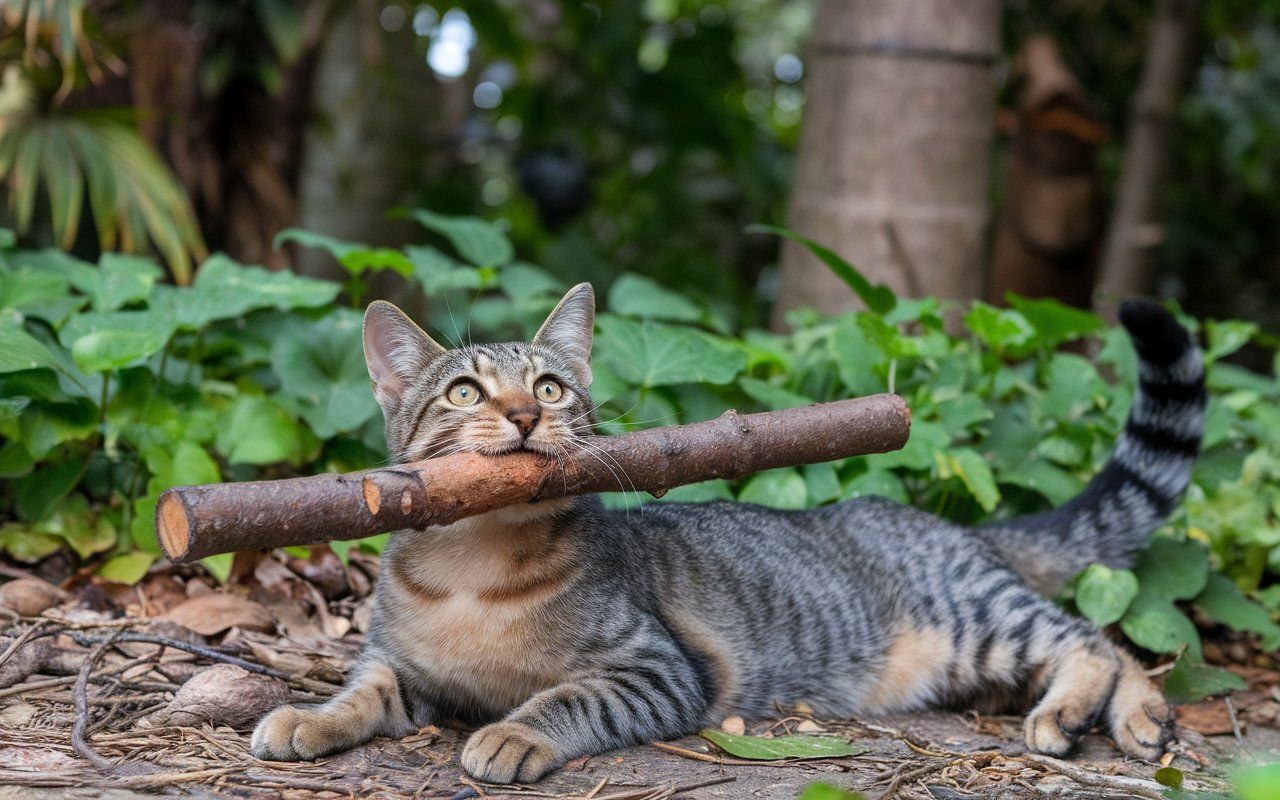Follow us on Google News (click on ☆)
This discovery, far from the usual stereotypes, reveals that the game of fetch isn't exclusively for dogs. It highlights shared instincts between our domestic companions, inherited from their hunter ancestors.

Researchers examined the behaviors of over 8,000 cats and nearly 74,000 dogs through online surveys conducted over several years. Among the cats, 41% sometimes or often retrieve thrown objects, a figure much higher than previous estimates. This behavior is more common in active, playful cats, especially those living indoors.
Certain cat breeds, such as Birmans, Siamese, and Tonkinese, are particularly skilled at this game. These breeds, originating from regions where feline domestication started early, show genetic distinctions that could explain their tendency to play fetch.
On the dog side, 78% of owners reported that their pets enjoy retrieving objects. Breeds like Labradors, Golden Retrievers, and Border Collies are the most prone to this behavior, which is often connected to better trainability.
Researchers also noted that this behavior, in both cats and dogs, is less common among females, older animals, or those with health issues. The link between play and hunting seems obvious, but domestication has likely encouraged the retention of juvenile behaviors like this one.
The study, the first of its kind to quantify this behavior in dogs, reveals that this game is much more common in cats than previously thought. The researchers suggest that domestication has shaped these playful behaviors, embedding them within the species as a form of social interaction and entertainment rather than predation.
Ultimately, this study sheds light on the complexity and diversity of our pets' behaviors, encouraging further exploration of their playful and social nature.
What is domestication?
Domestication is the process by which humans alter the behavioral and physical traits of an animal or plant species to meet their needs. This process, which can last thousands of years, involves selecting individuals with favorable traits, such as docility, productivity, or better adaptation to human environments.
In animals, domestication has often led to the conservation of juvenile behaviors, such as play or dependence on humans, even into adulthood. These traits are usually absent in wild animals but are found in domesticated species like dogs and cats.